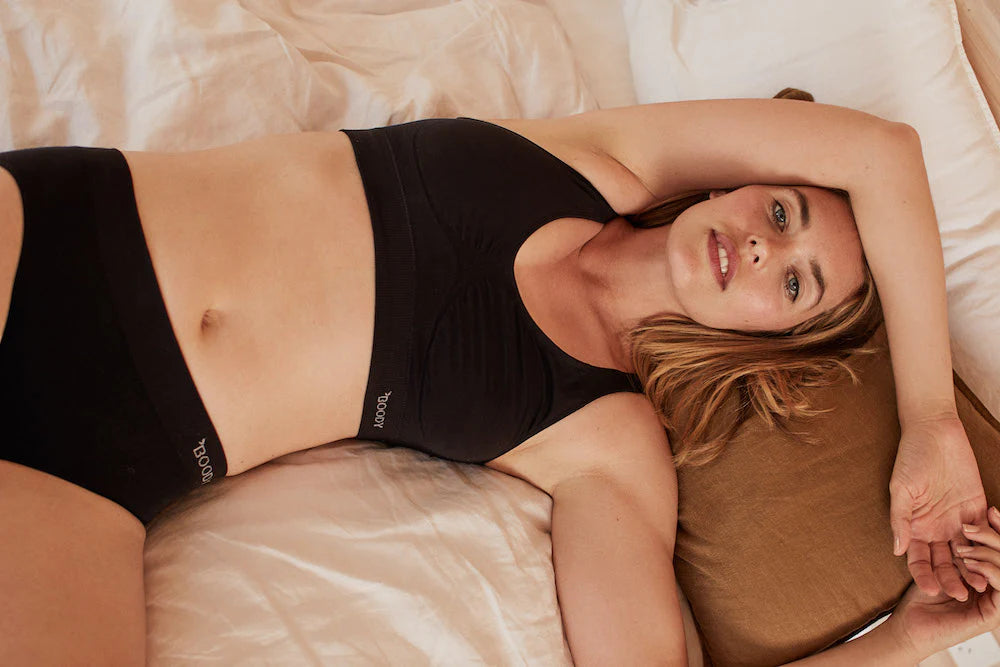Is Viscose Sustainable?
You may already be aware of the negative impacts the fashion industry has on the environment. Pollution, unsustainable production, and mountains of barely-loved clothes in landfills are just some of the serious problems.
This has led to a renewed fashion industry focus on sustainable fashion manufacturing practices, starting with material selection—and viscose fiber is one of the many new entrants to the raw material fabric market.
You may have a lot of questions when it comes to viscose. The questions might include if viscose is biodegradable, does viscose shrink, or is viscose a good material. But let’s start with this question: is traditional viscose eco-friendly?
Because viscose fiber is derived from natural raw material sources, it’s definitely more sustainable than its synthetic counterparts. However, the sustainability of a particular viscose fabric depends on the way it’s sourced and processed. In this short guide, we’ll explain the ins and outs of natural fiber viscose.
What is viscose?
First things first—what is traditional viscose?

The natural fiber viscose is a soft and sustainable fabric made from plant-based cellulose that is spun into yarns. Cellulose is the main component of plant cell walls and can be derived from sources including:1
- Wood
- Bamboo
- Seaweed
How does wood or bamboo become a soft, silky, and eco friendly fabric? In short, the plant matter is treated with chemicals to form a viscous liquid (hence the name viscose), which is reshaped before it congeals into a mostly-cellulose yarn. That yarn can then be woven to create sustainable fabric.
While viscose is made from natural materials, the use of chemical processors makes this sustainable fashion fabric semi-synthetic. Nonetheless, viscose’s plant-based roots make it surprisingly similar to fabrics woven from natural fibers. Viscose fiber looks like silk and feels like recycled cotton, making it a soft and versatile cloth.
What makes viscose eco-friendly?
Is viscose sustainable compared to other options on the market?
While chemicals play a role in the production of viscose fibre, most of the matter is derived from natural sources, giving viscose some potential advantages over synthetic fibers and even some natural fibers.
Is viscose environmentally friendly compared to these options? It all depends on the source from which it was derived.
Not all viscose is created equal
How do you know if your viscose garment is sustainable?
Viscose does not add microplastics to the environment. However, its relative advantages to cotton and other natural fibers vary based on its plant source and the farming methods employed.
Some viscose is made with wood pulp. In this case, trees are harvested for their cellulose. Without responsible planting and growing practices, deforestation can upset the balance and health of the ecosystem in a forest, putting animals and plants at risk.
However, cloth made from fast-growing plants like bamboo can actually have a positive impact on the natural environment. Bamboo requires much less water than cotton and carries additional benefits:
- Bamboo adds oxygen to the environment—in fact, 30% more than an equal area of trees.
- It’s also fast-growing and can gain up to a meter in height in just a single day.
- Unlike some other crops, bamboo adds nutrients to the soil and prevents soil erosion.
Look for Forest Stewardship Council (FSC) certified viscose products that come from sustainably managed land.
Is viscose biodegradable?
Because viscose is derived from natural sources, and in some cases contains no chemicals in the final product, it can be biodegradable, breaking down in about one year.
However, keep in mind that this applies only to 100% viscose fabric—and just like cotton, hemp, and linen, viscose is often mixed with acrylic or spandex to ensure form-fitting stretch.
Viscose’s body-friendly benefits
Sustainably-farmed bamboo viscose can have benefits for planet earth. But how does it actually feel to wear? Viscose is:
- Breathable, light, and airy, making it the perfect fabric for summer essentials, sustainable underwear, and other sustainable clothing staples.
- Super absorbent, which is important for activewear
- Hypoallergenic, making it a great choice for those with more sensitive skin. This is due to the fabric’s low permeability.
Boody’s bamboo viscose
Here at Boody, we prioritize sustainable fashion and eco-friendly design for our bamboo-derived viscose. We are anti-fast fashion and aim for the highest standards in environmental stewardship.
Our organically grown bamboo is never treated with pesticides, fertilizers, or artificial irrigation, making the entire process healthy and sustainable for the environment.
We love spreading the word about bamboo benefits. Our bamboo viscose essentials are incredibly breathable, soft, and eco-friendly, created with your comfort in mind. So go ahead, do something nice for yourself and planet earth—stock up on bamboo viscose staples with styles ranging from men’s bamboo shirts, to women’s underwear, women's bras, socks, and more!
About the Author:
Daisy Hemmen is a San Diego State University Fowler College of Business alumni. Based in Encinitas, California, Daisy is a part of the marketing team at Boody North America. She is passionate about learning the ins and outs of living a happy and healthy lifestyle that benefits both people and the planet, and enjoys sharing her bountiful findings with the community.
Sources:
- Treehugger. What is viscose fabric? https://www.treehugger.com/what-is-viscose-fabric-5070642
- Blue Green Tomorrow. The terrifying effects of polyester on our environment and health. https://blueandgreentomorrow.com/environment/terrifying-effects-of-polyester-on-environment-health/
- World Wildlife Federation. Cotton. https://www.worldwildlife.org/industries/cotton
Written by Daisy Hemmen for Boody.com USA

